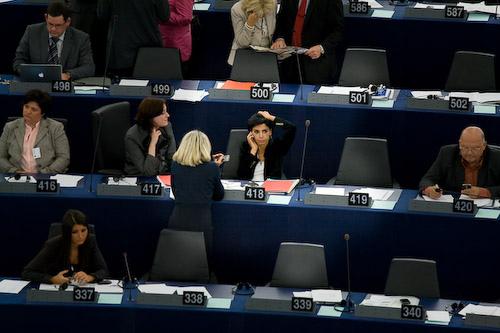Days before debate is to begin on new European anti-smoking regulations, the EU announced last week that the European Anti-Fraud Office (Olaf) had renewed interest in the former Commissioner responsible for tobacco regulation, John Dalli, with the opening of an official investigation. The Maltese businessman formerly charged with health and consumer protection for the EU resigned in October 2012 after allegations were brought by Olaf to Commission President José Manuel Barroso, who forced Dalli to resign only two days before legislative proposals for a Tobacco Products Directive (TCD) were to be launched by the Commission.
Olaf cannot conduct criminal investigations, capable only of doling out fines and dismissals, but it can pass its findings on to national authorities that have prosecutorial powers. The original investigation undertaken by the EU anti-fraud watchdog and subsequently taken up by Maltese authorities has thus far failed to turn up enough evidence to bring up formal charges and has been mired in allegations of mismanagement and bias. Mr. Dalli continues to maintain his innocence, saying he was intentionally targeted by the tobacco industry.
Mr. Dalli is suspected of having solicited nearly €60 million in kickbacks from the smokeless tobacco industry through a Maltese business associate. The investigation is now focusing on two trips Mr. Dalli took to the Caribbean last year. Olaf has reportedly interviewed Barry Connor, a Bahamas resident, who told investigators that the former Commissioner had flown to the island to organise a multi-million Euro transfer during the summer of 2012, while he was already under investigation by Olaf. Mr. Dalli has said that he had made the Caribbean trips to help coordinate the transfer for a charitable project to help people in Africa.
The case was originally brought to the attention of Swedish authorities in February 2012 by Swedish snus company (a form of smokeless tobacco) Swedish Match and then passed along to the Commission in May 2012. The company alleged that Silvio Zammit, a Maltese socialite, restaurateur, circus-owner and suspected intermediary of Mr. Dalli had solicited the company for as much as €60 million in return for using his influence with Mr. Dalli. Further allegations then surfaced that a bribe had also been solicited from the European Smokeless Tobacco Council (ESTOC).
Investigators suspect that the aim of these solicitations was to influence on-going legislative proceedings on tobacco products, in particular an end to the ban on snus sales. Since 1992, snus, small packets of tobacco held in the mouth, have been banned in the EU, with the exception of Sweden which demanded a derogation as a condition for membership. The ban was triggered by the U.S. Smokeless Tobacco Company’s attempts to introduce US-style moist snuff in Europe during the 1980s through an aggressive marketing campaign targeting young people.
The original ban in 1992, and its reaffirmation in 2001 in the first TCD, provoked surprisingly little backlash from industry compared with subsequent tobacco control initiatives. In recent years, however, the issue has become the subject of considerable debate. In 2010, the Commission undertook a public consultation on revisions to the 2001 TCD (including the ban on snus sales) that attracted over 85,000 responses. Throughout 2011, the EU’s Directorate-General for Health and Consuler Affairs (DG SNCO) has also held high-level talks with industry on the snus ban.
In Sweden too, authorities are pushing for an end to the ban. As a condition to the snus exemption negotiated by the country before joined the EU in 1995, Swedish authorities agreed to ensure that the product would not be sold in other Member States, meaning the only way for EU citizens to obtain snus legally would be to physically travel to Sweden. Under pressure by industry, the Swedish Government has now begun challenging the EU legislation, arguing that is constitutes a violation of free trade principles.
The resignation of Mr. Dalli came days before he was due to launch the post-consultation proposals for the new TCD. His resignation has delayed the beginning of debate by over a year. The proposal is now set to be submitted to the European Parliament for a plenary vote on October 8th by the new health Commissioner Tonio Borg.
Dalli has continued to maintain his innocence, saying that he was intentionally entrapped by the tobacco industry because he didn’t succumb to their pressure in the run-up to legislative proposals for the new TCD. He also contends that the bribe offer came from Swedish Match, not him or Mr. Zammit and that he asked Mr. Zammit not to speak on his behalf with the tobacco lobby.
The affair is the biggest scandal to hit the commission since 1999, when the entire College of Commissioners, led by former Prime Minister of Luxembourg Jacques Santer, resigned en masse over allegations of fraud and mismanagement. Paul van Buitenen, a whistle-blower working in the Commission, had allerted the Parliament to alleged widespread fraud and cover ups. A report on corruption published in April of this year by the Hertie School of Governance in Berlin showed calculated the cost of corruption in EU Member States to be well above previous estimates, amounting to €323 billion anually, nearly one-third the proposed EU budget for





